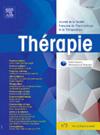Concilier régulation du médicament et démocratie sanitaire : rôle des conseillers patient ou professionnel de santé à l’ANSM
IF 1.8
4区 医学
Q3 PHARMACOLOGY & PHARMACY
引用次数: 0
Abstract
L’Agence nationale de sécurité du médicament et des produits de santé (ANSM) est une agence réglementaire et de santé publique. Ses actions de régulation, de police sanitaire et de protection de la santé publique imposent une parfaite adéquation avec le terrain et les différents acteurs concernés par l’utilisation des produits de santé. Depuis 2019, l’ANSM a adapté son organisation afin de promouvoir et améliorer ses interactions dans le cadre de sa politique d’ouverture à la société civile. Afin d’accompagner cette ambitieuse mutation et soutenir ses agents, l’Agence a recruté des conseillers reflétant les principaux profils d’utilisateurs de produits de santé : médecins, pharmaciens et patients. En collège ou individuellement, ils apportent un regard du « terrain » à chaque étape des processus de décision. Ils peuvent participer à l’évaluation des signalements et demandes comme aux validations de rapports ou aux instances d’échanges avec les parties prenantes. Ils interviennent notamment lorsque l’analyse nécessite une expertise au-delà des aspects scientifiques ou réglementaires. Ils peuvent aider à prendre en compte certains aspects du soin et les difficultés de terrain. Les conseillers participent à la lisibilité et à l’adéquation entre l’expertise réglementaire et/ou scientifique et le vécu des utilisateurs. Au-delà de l’aspect scientifique et thérapeutique, le médicament est aussi un objet économique, social et politique. Ainsi, sa régulation est particulièrement concernée par le besoin de démocratie sanitaire dont les conseillers sont les facilitateurs. Celle-ci impose une participation active des professionnels de santé, des patients et plus largement de la société civile dans la prise de décision. Dans ce contexte, la prise en compte de la pluralité des points de vue dans la régulation des produits de santé est nécessaire mais complexe. Elle peut être facilitée par l’adaptation des organisations, comme l’intégration de conseillers.
The French National Agency for Health Products (ANSM) is a regulatory and public health agency. Its regulatory, health policing and public health protection activities require a perfect fit with the field and the various people involved in the use of health products. Since 2019, the ANSM has adapted its organisation, procedures and processes to encourage and improve interaction with its stakeholders, as part of its policy of openness towards civil society. To accompany this ambitious change and to support its staff, the Agency has recruited advisors corresponding to the main users of health products: prescribers (doctor's hospital and outpatient), pharmacists and patients. Working as a group or individually, they provide a “lived” user perspective on health products at each stage of the evaluation process. They may be involved in the assessment of dossiers, signals or applications received by the Agency, in the internal validation of reports or in discussions with stakeholders. They are particularly involved when the analysis requires expertise that goes beyond the technical, scientific or regulatory aspects. They may also work with ANSM staff to explain certain processes and difficulties in the field. Advisors help to ensure that regulatory and/or scientific expertise is clear and consistent with user experience. In addition to their scientific and therapeutic aspects, medicines are also economic, social and political issues. Their regulation is therefore particularly affected by the need for health democracy. This requires the active participation of health professionals, patients and, more broadly, civil society in the decision-making process. Civil society is a space occupied by a wide range of actors who exert pressure from different ideological positions to influence the regulation of health products. In this context, taking into account a plurality of viewpoints in the regulation of health products is necessary and complex, but its operation can be facilitated by the collective efforts of the actors and the adaptation of organisations, such as the integration of advisors.
[平衡药品监管与健康民主:病人和医疗保健专业顾问在 ANSM 中的作用]。
法国国家保健品局(ANSM)是一个监管和公共卫生机构。其监管、卫生警务和公共卫生保护活动需要与使用保健产品的领域和各类人员完美契合。自 2019 年起,作为对民间社会开放政策的一部分,ANSM 调整了其组织、程序和流程,以鼓励和改善与其利益相关方的互动。为了配合这一雄心勃勃的变革,并为其工作人员提供支持,该局招聘了与保健产品主要用户(处方医生(医院和门诊)、药剂师和患者)相对应的顾问。他们以小组或个人形式开展工作,在评估过程的每个阶段提供有关保健品的 "活生生 "的用户视角。他们可能会参与评估该机构收到的档案、信号或申请,参与报告的内部验证,或参与与利益相关者的讨论。当分析工作需要超越技术、科学或监管方面的专业知识时,他们的参与尤为重要。他们还可能与国家核安全局的工作人员合作,解释实地的某些流程和困难。顾问有助于确保监管和/或科学专业知识清晰明了,并与用户体验保持一致。除了科学和治疗方面,药品也是经济、社会和政治问题。因此,药品监管尤其受到健康民主需求的影响。这就要求卫生专业人员、患者以及更广泛的公民社会积极参与决策过程。民间社会是一个由各种行为者占据的空间,他们从不同的意识形态立场施加压力,影响对保健产品的监管。在这种情况下,在保健产品的监管中考虑到观点的多元性是必要的,也是复杂的,但可以通过行为者的集体努力和组织的调整(如顾问的整合)来促进其运作。
本文章由计算机程序翻译,如有差异,请以英文原文为准。
求助全文
约1分钟内获得全文
求助全文
来源期刊

Therapie
医学-药学
CiteScore
3.50
自引率
7.70%
发文量
132
审稿时长
57 days
期刊介绍:
Thérapie is a peer-reviewed journal devoted to Clinical Pharmacology, Therapeutics, Pharmacokinetics, Pharmacovigilance, Addictovigilance, Social Pharmacology, Pharmacoepidemiology, Pharmacoeconomics and Evidence-Based-Medicine. Thérapie publishes in French or in English original articles, general reviews, letters to the editor reporting original findings, correspondence relating to articles or letters published in the Journal, short articles, editorials on up-to-date topics, Pharmacovigilance or Addictovigilance reports that follow the French "guidelines" concerning good practice in pharmacovigilance publications. The journal also publishes thematic issues on topical subject.
The journal is indexed in the main international data bases and notably in: Biosis Previews/Biological Abstracts, Embase/Excerpta Medica, Medline/Index Medicus, Science Citation Index.
 求助内容:
求助内容: 应助结果提醒方式:
应助结果提醒方式:


